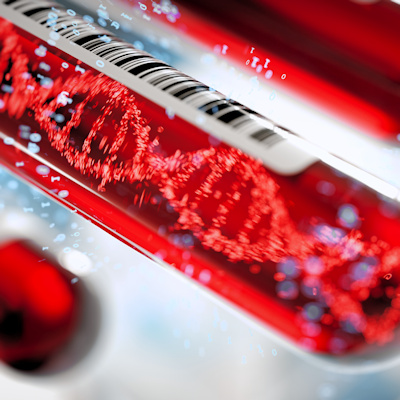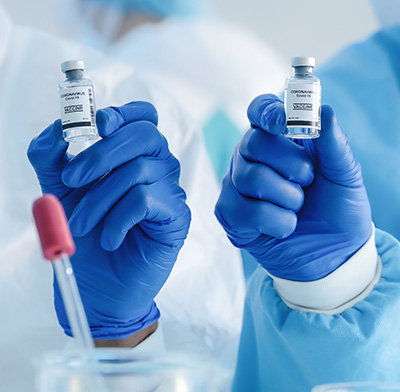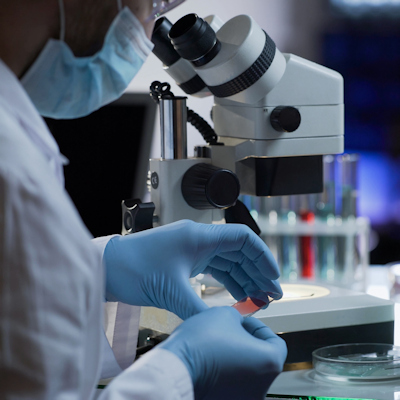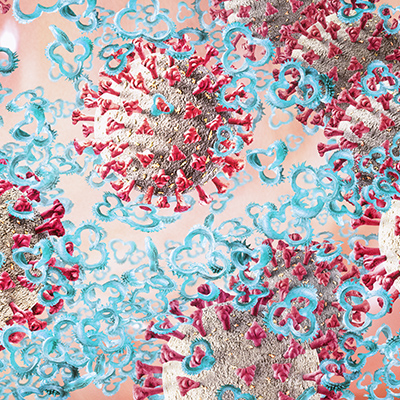October 29, 2020 -- How long does the immune response last in patients with the SARS-CoV-2 virus? This has been a key question in shaping the public health response to the COVID-19 pandemic, and a new report published in Science on October 28 offers some good news.
Researchers from New York City found that the vast majority of individuals infected with the SARS-CoV-2 virus were found to have moderate-to-high titers of anti-spike protein antibodies that lasted for more than five months. The study analyzed over 30,000 SARS-CoV-2-positive samples.
In mild cases of SARS-CoV-2, understanding the strength of the antibody response -- including longevity and functionality -- is important to assess if reinfection is possible. Previous research of common human coronaviruses suggested that infection induces neutralizing antibodies that can last for years to provide protection from reinfection. Moreover, transferring convalescent serum or neutralizing monoclonal antibodies to naïve animals can be protective and reduces virus replication significantly.
In the current paper, multidisciplinary research teams from the Mount Sinai Health System in New York City set out to clarify and characterize aspects of the humoral immune response to SARS-CoV-2.
The researchers used an assay to characterize the antibody response that is based on the trimerized, stabilized ectodomain of the SARS-CoV-2 spike protein. An enzyme-linked immunosorbent assay (ELISA) developed by Mount Sinai researchers was used in this study to characterize the antibody response to SARS-CoV-2. The test was among the first to receive emergency use authorization from the U.S. Food and Drug Administration.
The Mount Sinai team began screening individuals for antibodies to SARS-CoV-2 in March 2020. By the beginning of October, the group had screened over 72,000 individuals with a total of just over 30,000 individuals testing positive. Of these positive samples, around 7% were classified as having low titers (1:80 or 1:160), 22% had moderate titers (1:320), and approximately 70% had high titers (1:960 and 1:2880). Therefore, the number of individuals who did not seroconvert (develop an antibody response) after SARS-CoV-2 infection was low.
Next, to determine the protective effects of neutralizing SARS-CoV-2 spike antibodies, the researchers performed a quantitative microneutralization assay based on authentic SARS-CoV-2 with 120 samples of known ELISA titers ranging from "negative" up to a titer of 1:2880. They found that around 50% of the low titer samples had neutralizing activity, 90% of the moderate titer samples had neutralizing activity, and 100% of the high titer samples had neutralizing activity.
"Our microbiology colleagues generated great science and tools that were brought from the research lab into the clinical laboratory, where we were able to implement robust and compliant diagnostic tests at an unprecedented pace," said author Dr. Carlos Cordon-Cardo, PhD, chair of pathology at the Icahn School of Medicine at Mount Sinai, in a statement. "The tireless efforts of so many have enabled us to uncover knowledge that can help inform COVID-19 policy and aid in vaccine development."
To test the longevity of the antibody response, they tested 121 plasma donors at a variety of titer levels who had initially been screened at approximately day 30 post-symptom onset for two additional time points. The initial measurement was collected between 33 and 67 days post-onset, the second at 52 to 104 days post-onset, and the third between 113 and 186 days post-onset.
The researchers observed a slight drop in titer level from the first to the second time point and another for the last. In the higher titer samples, the decline in titer level was slow over time. Overall, most antibody titers were stable for a period of at least three months with only modest declines at the five-month time point.
"The serum antibody titer we measured in individuals initially were likely produced by plasmablasts, cells that act as first responders to an invading virus and come together to produce initial bouts of antibodies whose strength soon wanes," said Dr. Ania Wajnberg, first author and director of clinical antibody testing at the Mount Sinai Hospital. "The sustained antibody levels that we subsequently observed are likely produced by long-lived plasma cells in the bone marrow. This is similar to what we see in other viruses and likely means they are here to stay. We will continue to follow this group over time to see if these levels remain stable as we suspect and hope they will."
The researchers plan to follow this cohort of patients over longer periods of time. Although their findings cannot provide conclusive evidence that these antibody responses protect from reinfection with SARS-CoV-2, the team believes it is very likely that the antibodies will decrease the odds of getting reinfected and may attenuate disease in the case of breakthrough infection.
"While some reports have come out saying antibodies to this virus go away quickly, we have found just the opposite -- that more than 90% of people who were mildly or moderately ill produce an antibody response strong enough to neutralize the virus, and the response is maintained for many months," said author Florian Krammer, PhD, professor of vaccinology at the Icahn School of Medicine at Mount Sinai. "Uncovering the robustness of the antibody response to SARS-CoV-2, including its longevity and neutralizing effects, is critically important to enabling us to effectively monitor seroprevalence in communities and to determining the duration and levels of antibody that protect us from reinfection. This is essential for effective vaccine development."
Do you have a unique perspective on your research related to immunology or infectious diseases? Contact the editor today to learn more.
Copyright © 2020 scienceboard.net










